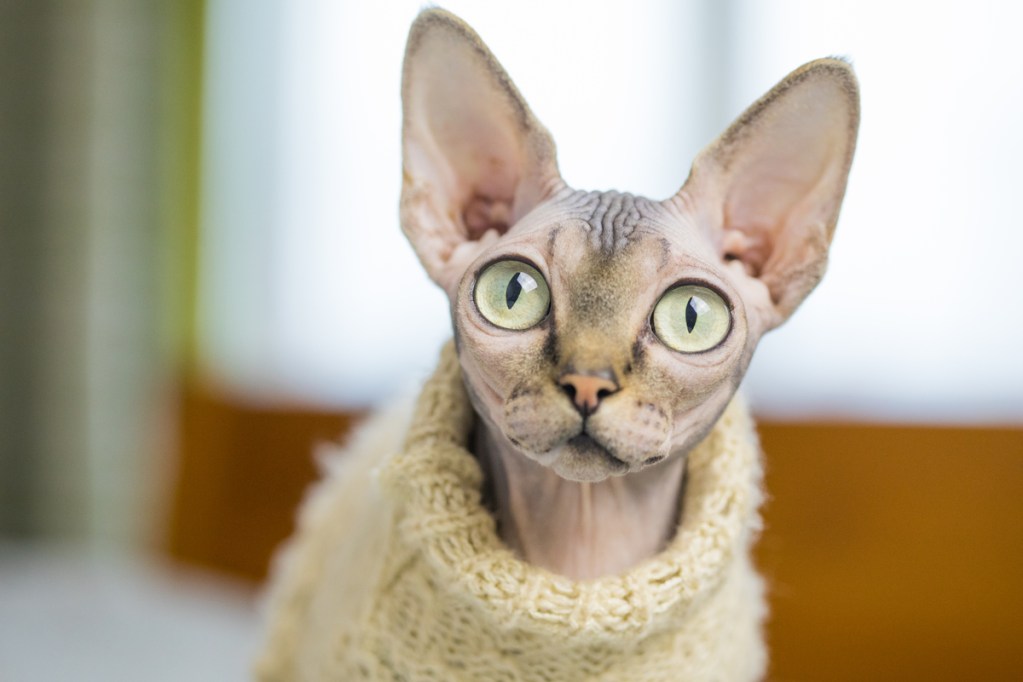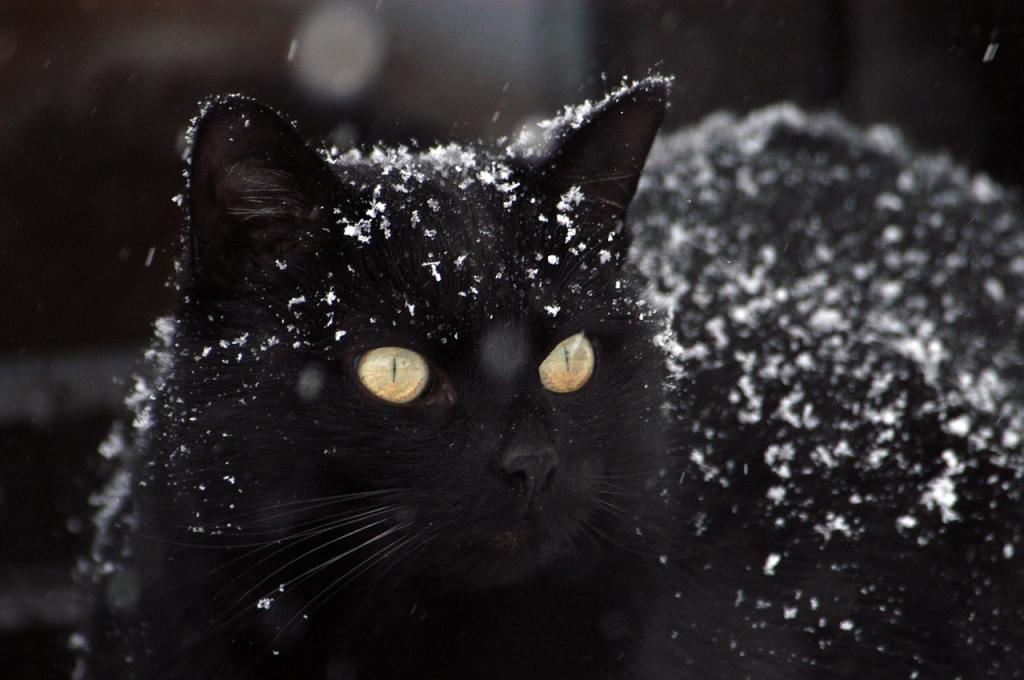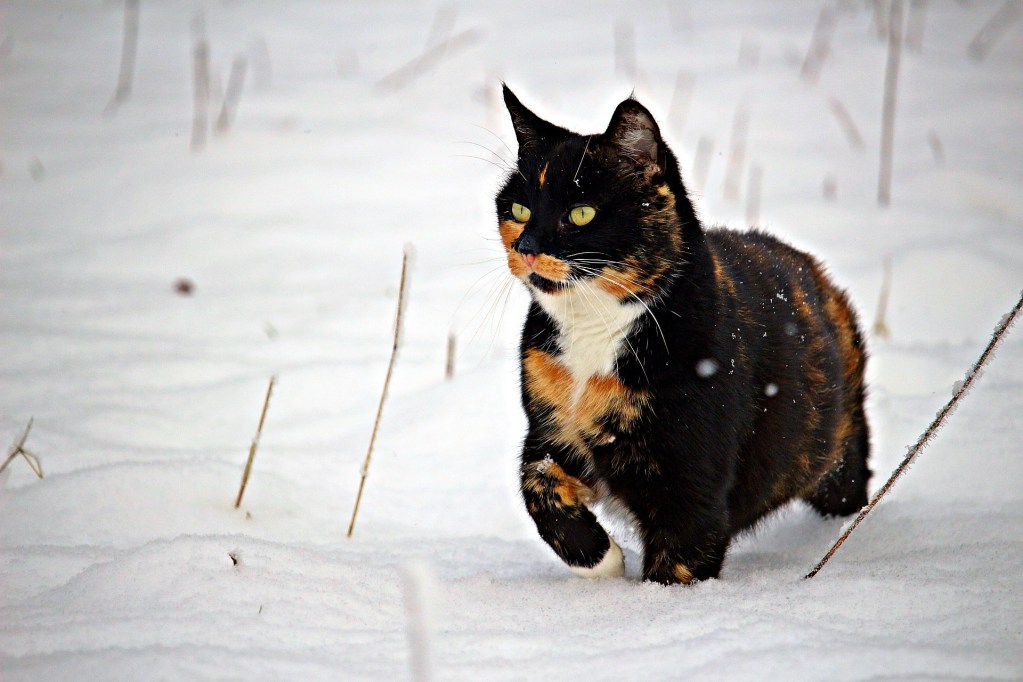
Every loving feline owner knows that a cat is more than just a furry roommate. She’s a member of the family. That’s why — for her own safety and your peace of mind — we always recommend keeping cats indoors. However, some cats are determined to find their way outdoors no matter what.
While cats can generally withstand both extreme heat and extreme cold without suffering the consequences, veterinarians advise you to remain vigilant once the temperature begins to dip into the 40s. But that’s only the basics! If you’ve been wondering about the potential dangers for cats outside in winter, you’ve come to the right place. Here’s everything you need to know.

How cold is too cold for cats to be outside?
Despite their small size, cats are relatively hardy and resilient. In fact, cats are considered apex predators because of their success rate at hunting prey! If humans vanished without a trace, cats would be able to fend for themselves in the wild. Even so, cats are not invulnerable. So, how cold is too cold for cats outside in winter? That depends on the cat in question. It also depends on your cat’s outdoor accommodations.
Outdoor-only cats are better acclimatized to cold weather than are cats who spend the bulk of their time indoors. However, vets advise against leaving outdoor cats in the cold when the average daily temperature drops below 45 degrees Fahrenheit. In other words, if the temperature is 42 degrees on Monday and 52 degrees Tuesday through Sunday, your outdoor kitty will be OK. On the other hand, if the temperature reaches only 45 degrees over a seven-day period, it’s time to bring your cat indoors.

Why are some cats more tolerant of the cold than others?
Just like people, cats each have their own personalities, preferences, and unique physical traits. And that includes the ways they regulate body temperature. While hairless cat breeds like the Sphynx have almost no immunity to the cold, those who were bred for the outdoors will grow a thick winter coat. Just think about the Maine Coon, or the fluffy Siberian cat!
Cats who spend more time outdoors will also be better prepared for the winter weather. This is because a cat’s hormones kick in to help them shed and then grow their winter coat when the daylight hours begin to decrease. If a cat is indoors year-round, they won’t be exposed to this natural daylight rhythm and may experience less dramatic shedding and undercoat growth.

How do I keep my cat warm during the winter?
Don’t lose hope if your outdoor cat refuses to come inside during the winter. There are several ways you can keep your stubborn fur baby warm and safe outdoors. Here are a few tips.
Invest in a shelter for outdoor cats
Purchasing a cat house—or building one on your own—will protect your outdoor cat from the elements. Make sure the entrance is small enough to keep out predators and help the shelter retain heat. (Installing a plastic door flap helps, too.) Fleece blankets, straw, and self-warming cat beds are all ideal insulation for your cat’s cozy new place.
Provide warm food and water indoors and outdoors
Preventing your cat’s water from freezing over during the winter poses a problem for outdoor cat parents. Placing your cat’s shelter near your home not only will help block out the wind, but also will allow you to use an electric heating bowl to keep your cat’s water from freezing. Cats need more calories during the winter, so we recommend warming a dish of canned food and mixing it in with her kibble. Warming her food will also release its aroma, making her more inclined to consume those much-needed extra calories.
Bundle up your indoor/outdoor cat before letting her outside
Winter gear like cat sweaters and booties are essential if you have an indoor cat who enjoys occasionally roaming the yard. Cats who spend most of their time indoors feel the cold more intensely than cats who live exclusively outdoors, so make sure you bundle up Miss Kitty before allowing her to play in the yard.
What are the most common winter dangers for cats?
Freezing temperatures aren’t the only threat to your outdoor fur baby during the winter months. Here are several dangers to cats you’ll need to look out for during wintertime.
Antifreeze is essential to cars, but harmful to cats
Antifreeze is a cold-weather essential if we want our cars to remain functional. Unfortunately, antifreeze is also a toxic substance to animals. A tiny amount of antifreeze can kill a cat, so you’ll want to take precautions when adding thie chemical to your car. Wipe up any droplets immediately, and make sure you store antifreeze where curious cats can’t reach it. Remember, not even “pet-safe” antifreeze is completely safe for your cat, though it’s less likely to prove fatal if ingested. Signs of antifreeze poisoning include:
- vomiting
- lethargy
- seizures
- respiratory distress
- increased urination
If you suspect that your cat has ingested antifreeze, you should take her to the vet immediately.
Cars can lose control easily in winter weather
Snow can decrease a driver’s visibility, and ice is incredibly slippery (and often invisible), which puts your cat at an increased risk of being hit by an automobile. But that’s not the only danger that cars and trucks pose during the winter, either. Cats often crawl beneath car hoods to stay warm, so you should knock on the hood of your vehicle before you start it. If a cat is hiding beneath the hood, she could be severely injured or killed by the fan belt.
Ice melts and de-icing products can cause poisoning and irritation
Just as antifreeze is necessary to keep our cars running, ice melts help keep roads and sidewalks clear. Unfortunately, cats who stroll across ice melts can suffer a variety of health consequences. If pet-friendly ice melts are used, mild skin irritation and digestive issues can occur. However, ingesting some ice melts can be fatal to your cat, causing symptoms similar to antifreeze consumption.
Even rock salt, the most common ice melt, can be toxic to pets if ingested. This usually only happens when a cat licks their paws after walking through rock salt, as it can be irritating to their skin.

Cats are stubborn and fiercely independent, but that doesn’t mean they don’t need extra attention during winter. Providing your outdoor kitty with a warm shelter, taking extra precautions when using antifreeze, and checking your car before starting it are all vital to your cat’s wintertime safety. If you can’t keep your cat indoors, at least you can do your part to make her a little safer outdoors.




